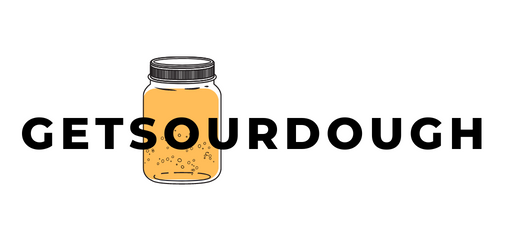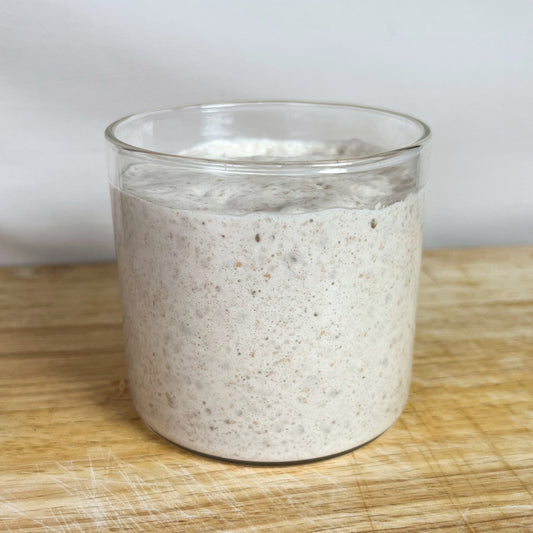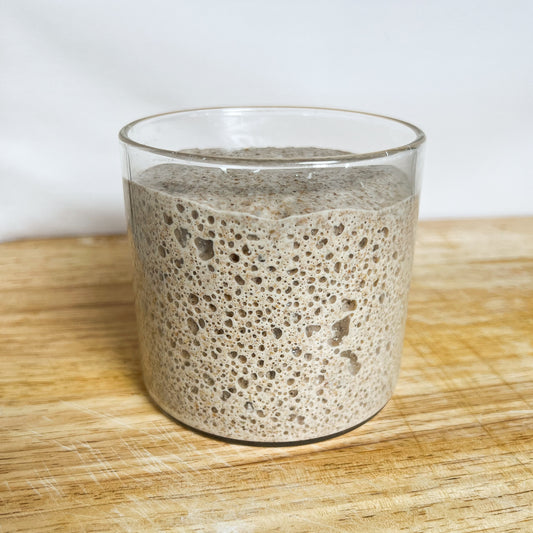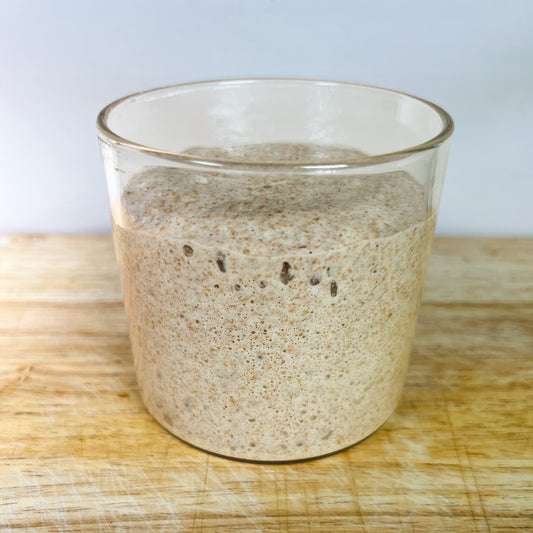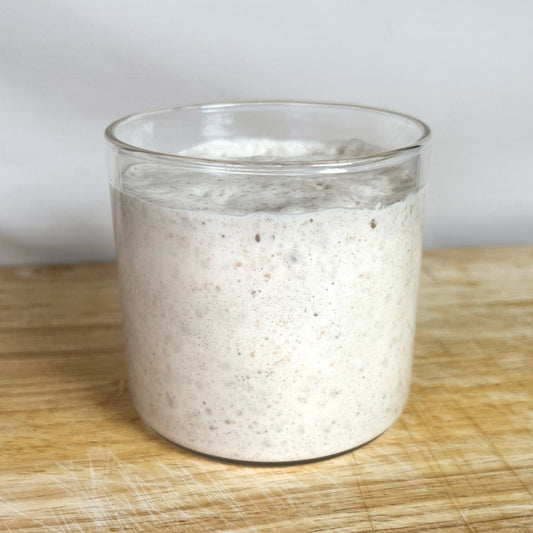How Do Different Flours Affect Sourdough Starter?

Some believe it doesn’t matter what flour you use for your sourdough starter. That couldn’t be further from the truth. It affects all aspects of your starter, like fermentation, bread density, nutritional value, and how wet and sticky your dough is. There are three things to consider when it comes to flour: dough texture and how it handles, the density of your final loaf, and the flavor.
Types of flour
One of the core principles of baking is that ingredients matter. That means that the type and quality of ingredients matter. When it comes to sourdough starters, that ingredient is flour. Making sourdough starter starts with flour and water, and you have to feed the starter until yeast starts to form.
Wheat
Pros
Wheat flour contains bran, endosperm, and germ. These help to create a faster fermentation and pack your sourdough full of nutrients and microbes.
Cons
On the flip side, bran can inhibit gluten development. Bran is sharp and cuts through the bonds of the gluten matrix. As the gluten tries to do its job and raise your bread, the bran can cut through sections of it and flatten the area. If this happens in multiple locations, your bread may not rise as high, retain shape, or trap gases well. Bran is also high in fiber and makes whole wheat flour more water absorbent, resulting in stiffer bread dough.
Rye
Pros
Rye flour is rich in amylases, nutrients, and microbes. These amylases ad microbes allow the starter to convert sugar faster and ferment efficiently. Though whole wheat flour is nutrient-dense, rye is even more so. Rye is the most nutrient and amylase-dense choice for your sourdough starter.
Cons
The downside of rye is that it has a lower gluten content than wheat flour. Rye produces sticky, dense, and slack dough. It also contains pentosans which absorb water and result in gummy dough. It is high in gliadin but low in glutenin, which can add to the sticky viscosity. Glutenin helps the dough rise, meaning rye tends to be a more dense flat loaf.
Spelt
Pros
Spelt is high in protein, but less of it is glutenin than whole wheat. It is high in minerals and less harsh on the digestive system. So, suppose you have any food sensitivities. In that case, this could be a good alternative that is lower in gluten and lighter on the digestive system because of its less fibrous nature. Spelt is also less absorbent than other flours, and you may need less water because it already tends to be very slack.
Cons
The low glutenin level creates a dough that is slightly more difficult to handle than wheat. It also has a limited amount of elasticity. It will stretch a lot but won’t spring back easily. Spelt can cause a denser and flatter-shaped loaf.
Gluten-Free
Many people believe that you can’t make gluten-free sourdough. Still, there are multiple gluten-free flours that you can use to make sourdough. They break down into categories like brown rice flour, white rice flour, teff flour, sorghum flour, and gluten-free all-purpose blend.
Many people have gluten allergies or intolerances, so it may be a benefit to use gluten-free flour and a necessity. It can be challenging to work with gluten-free flour because gluten is a significant factor in sourdough bread’s ability to rise. Rye is flour that contains less gluten, so a gluten-free sourdough starter would act similarly to rye.
Organic
Organic flour is, by its nature, less processed. Organic sourdough starters tend to have the traditional baked bread, yeasty smell, and a much more complex flavor profile.
Stoneground
Stoneground sourdough starters also produce a more flavoursome loaf like organic. Though ferment slower, they are much more nutrient dense because they contain more bran. The process of stone milling introduces less heat to the grain as it is ground. This allows the healthy fats to survive. It is also much coarser than all-purpose and even wheat flour, giving a denser loaf and making it more challenging to handle. It is, however, worth the small amount of added work. The flavor and smell can not be beaten!
Conventional
Conventional flour contains less bran and germ and is mostly endosperm. This causes the bread to rise well because it has very active gluten development, but it also means that the bread is starchy, less flavourful, and less nutrient dense. The intense gluten development creates a lighter, softer textured bread with more open crumbs and an aerated structure. Conventional flour has a milder simple flavour, if you want the strong sourdough flavour than conventional flour isn’t the right choice for you.
It is important to understand different flours and how they affect the complexity of working with the dough, the density or creation of your bread, and perhaps most importantly, the flavour. Once you find the flour that you love and work well with, you are well on your way to many more beautiful loaves.
If you are interested in getting started with your sourdough journey, you can buy our sourdough starters here.
